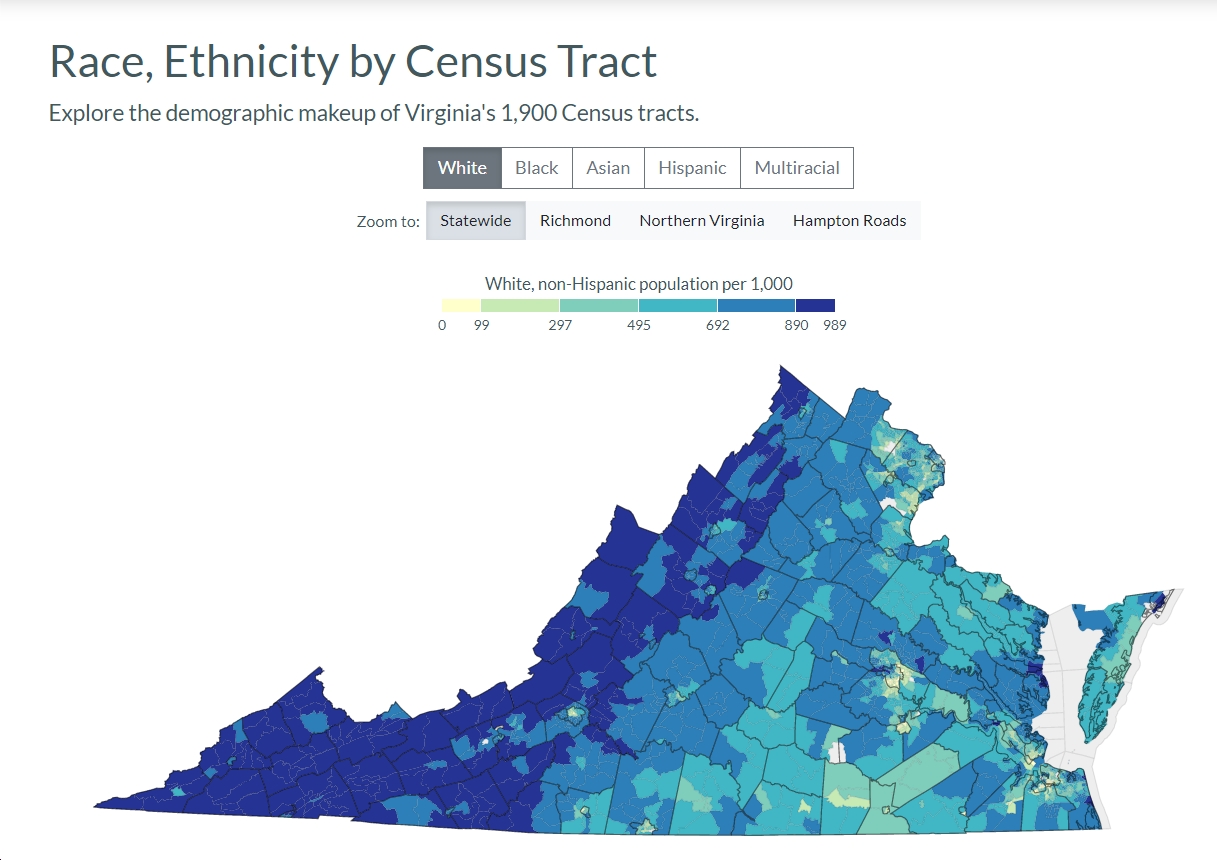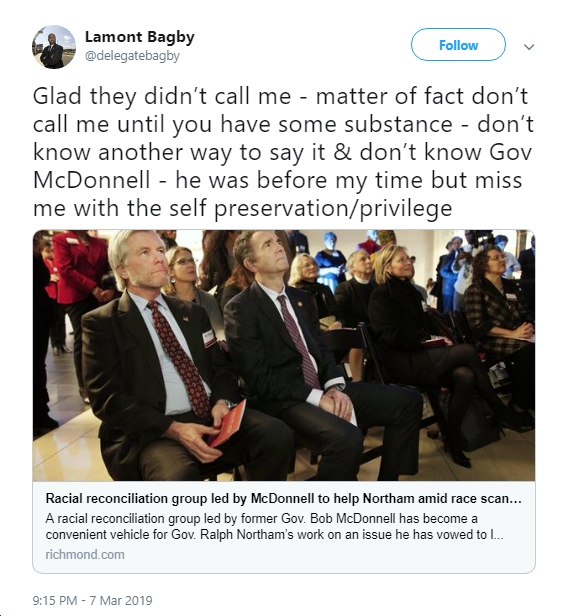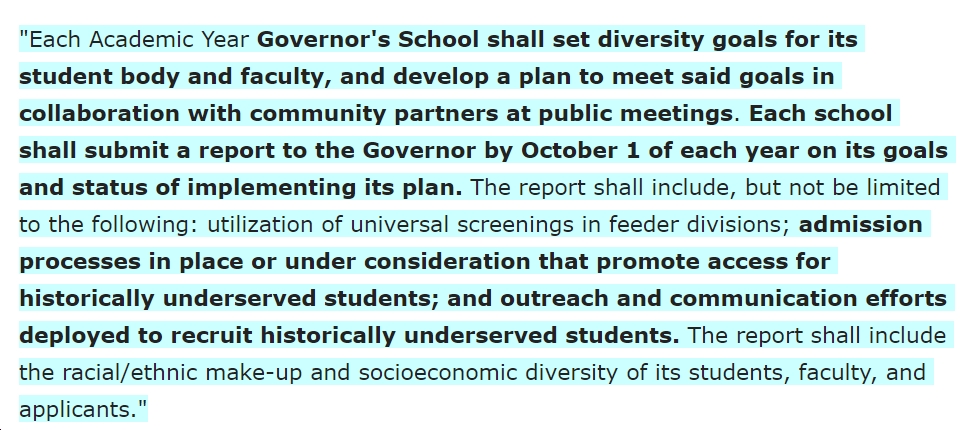Check out the following video of a brilliant speech, delivered by Del. Candi Mundon King (D-Prince William, Stafford County), on the floor of the Virginia House of Delegates earlier today. See below for a transcript, in which Del. King talks about Black History Month, the “Miseducation of the Commomwealth,” the “New Era of Massive Resistance,” the Virginia Legislative Black Caucus, “hundreds of years of legal and strategic efforts to make Black Virginians feel inferior,” etc. Powerful!
“Yay, clap it up for Black History Month. Mr. Speaker, as we continue the celebration of Black History Month, I’d like to share with this body a story of Black history and a story of Black present. Let’s call this story the miseducation of the Commonwealth.
I’ve watched throughout Black History Month as we’ve celebrated Black history, while some simultaneously work to destroy Black presents and Black futures. And it reminds me of that great philosopher and composer, Lauryn Noel Hill, who once said ‘how you gonna win if you ain’t right within?’ And I ask this question, because in this body we applaud the ‘hidden figures’ of NASA, while at the same time ensuring that the next Katherine Johnson doesn’t have access to the Governor’s School of Technology, because in a school where less than two percent of the students are Black, for some, that’s two percent too many.
And H In economic policy, we see every attempt to lift the boats of economically disadvantaged communities squashed. How we going to win if we ain’t right within? And last but certainly not least, we have the new era of Massive Resistance, and this time it’s not the Woolworth counter that’s the battleground, it’s a classroom where teachers dare to bring Black stories from the margins onto the full page of the curriculum. It’s in this body where we are willing to sacrifice truth, because it makes us uncomfortable. And I ask again, how we gonna win if we ain’t right within?
But you know, Virginia has a native son who doesn’t really get enough credit. Dr. Carter G. Woodson said in 1933, ‘if you can control a man’s thinking, you do not have to worry about his actions; when you determine what a man shall think, you do not have to concern yourself with what he will do; if you make a man feel that he is inferior, you do not have to compel him to accept an inferior status, for he will seek it for himself.’
Like many of you, I was miseducated. I was taught as a child that my Black skin, that my hair, that my family gave me an inherently inferior status and that in order to be acceptable, I had to be acceptable to the people who didn’t look like me. I was miseducated and it wasn’t by chance. It didn’t just happen. It was hundreds of years of legal and strategic efforts to make Black Virginians feel inferior.
It was in this very room where curriculums were created to ensure that Black children didn’t know their history. It was in this room where legislators sat around tables and decided that if these children knew their history, they would be too powerful, they would be too free, and they would no longer accept the inferior status that our Commonwealth has always placed upon them. It was in this very room that elected officials decided to give public dollars to private schools just to avoid integration. Public dollars to private schools. Sounds familiar, right?
And as we speak about Black history, I ask us to acknowledge our own miseducation. For you may win an election, but what are you willing to lose? What will history say? What will your children and grandchildren say about your legacy? Are you willing to address your own miseducation so that we can all win?
And finally, Mr. Speaker, much has been said about lessons learned in November. They just didn’t learn in November. But I want to talk about another November, when just like today men those brave souls came from across the Commonwealth and although they were excluded from group photos, segregated, threatened, harassed, they pressed, on because they knew that their voices were needed at the table, they knew that the miseducation would continue without them – the Black codes, the lynchings, the unfunded schools, the broken promises, the continued slavery in the form of sharecropping. So they pressed on. And guess what; history doesn’t tell their stories. Our textbooks don’t tell their stories. You may know what Thomas Jefferson had for breakfast, but you’ll never know their story.
But fast forward to today, where their legacy continues, with the 21 members of the Virginia Legislative Black Caucus. And we continue their legacy, because this caucus is bigger than any one person. It’s bigger than any political party. Believe it or not, this caucus has served as the conscience of this body fighting not just for Black folks, but for all marginalized communities. And this caucus is full of real trailblazers whose canons of work speak for themselves. The first woman to serve as President Pro Tem of the Senate. The first Black man to chair Appropriations. The first Black woman to chair transportation. The first Black person to chair the Labor and Commerce Committee. The first Muslim member of the House of Delegates. The first Black mayor of Hampton, Virginia. Real trailblazers serve in this caucus.
But for this caucus, it’s not enough to just blaze a trail or give a Black History Month speech or have our five minutes of fame. For this caucus, our fight is bigger. Because we know that Black present and Black future depend on us to be a voice. And we refuse to stand up and give speeches and leave the work of equality and equity for the next generation to complete. Thank you Mr. Speaker [Applause]


![Virginia NAACP: “This latest witch hunt [by the Trump administration] against [GMU] President Washington is a blatant attempt to intimidate those who champion diversity.”](https://bluevirginia.us/wp-content/uploads/2025/07/gmuwwashington.jpg)



![Thursday News: “Heat wave blanketing Olympics ‘impossible’ without climate change”; “A very dangerous 24 hours in the Middle East”; “Speaking to Black journalists, Trump reminded everyone how racist [and unlikable] he can be”; “What Harris’ VP Pick Will Say About the Campaign She Is About to Run”](https://bluevirginia.us/wp-content/uploads/2024/08/mediamatters0801.jpg)











